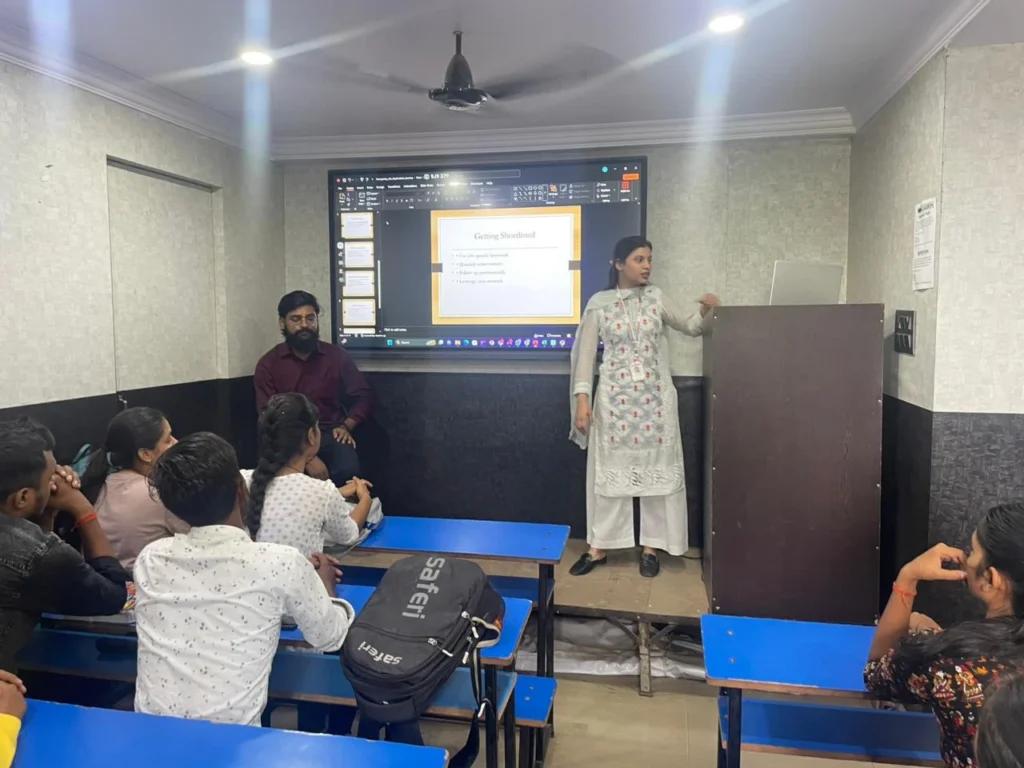Top Python Interview Questions & Answers
If you are preparing for a job interview that involves Python programming, it’s useful to practice common questions. Below are some frequently asked Python interview questions along with model answers and tips to expand on them.
1. What are Python’s key features and advantages?
Answer:
- Simple and readable syntax, which makes it easy for beginners
- Dynamically typed (you don’t need to declare variable types)
- Interpreted language (no compilation step)
- Rich standard library and many third-party libraries (NumPy, Pandas, Django, etc.)
- Cross-platform (runs on Windows, Linux, macOS)
- Supports multiple paradigms: procedural, object-oriented, functional
- Strong community support
Tip: You can mention specific libraries relevant to your field (e.g. data science, web development) to show domain awareness.
2. What is the difference between list, tuple, and set?
Answer:
- List: ordered, mutable, allows duplicates
- Tuple: ordered, immutable, allows duplicates
- Set: unordered, mutable (though elements must be hashable), no duplicates
You can mention when to choose which—for example, use tuple when data should not change, set when you need uniqueness or membership tests fast.
3. Explain what a Python decorator is and give an example.
Answer:
A decorator is a function that wraps another function to modify its behavior without changing its code.
def my_decorator(fn):
def wrapper(*args, **kwargs):
print("Before call")
result = fn(*args, **kwargs)
print("After call")
return result
return wrapper
@my_decorator
def greet(name):
print(f"Hello, {name}")
greet("Alice") # prints Before call, Hello, Alice, After call
You can also mention built-in decorators such as @staticmethod, @classmethod, @property.
4. What is the difference between deep copy and shallow copy?
Answer:
- A shallow copy creates a new object but does not create copies of nested objects; the nested objects are references to the same internal objects.
- A deep copy recursively copies all objects, so nested objects are duplicated.
You can mention the Python copy module (copy.copy() vs copy.deepcopy()) as implementation.
5. How does Python’s garbage collection work?
Answer:
Python uses reference counting plus a cyclic garbage collector. Each object keeps a count of references; when the count drops to zero, memory is freed. But reference cycles (objects referencing each other) can’t be freed by reference counting alone, so Python also uses a cyclic GC to detect and clean cycles.
You can also mention how __del__ can be used, but often discouraged, and the gc module to control GC behavior.
6. What are Python generators and how do they differ from normal functions?
Answer:
Generators are special functions using yield instead of return. Each call of yield produces a value and suspends function state, so the function can continue from that point when the next value is requested. They are memory efficient when working with large sequences.
Example:
def count_up_to(n):
i = 1
while i <= n:
yield i
i += 1
7. What is the GIL (Global Interpreter Lock)?
Answer:
In CPython (the standard Python implementation), the GIL ensures that only one thread executes Python bytecode at a time. This simplifies memory management but means Python threads cannot fully exploit multiple CPUs for CPU-bound tasks (though I/O bound tasks still benefit).
You can mention alternatives like multiprocessing or alternate Python implementations (e.g. Jython, IronPython) if relevant.
8. Explain exception handling in Python with try/except/finally/else.
Answer:
try: block of code where exceptions might occurexcept: catches and handles specific exceptionselse: executes if no exception occurs intryfinally: always executes regardless of exception (useful for cleanup)
You can show example:
try:
x = 1 / 0
except ZeroDivisionError:
print("division by zero")
else:
print("no error")
finally:
print("cleanup")
9. What are list comprehensions and generator expressions?
Answer:
- List comprehension: concise syntax to build a list from an iterable:
squares = [x * x for x in range(10)] - Generator expression: similar syntax but with parentheses, returns a generator (lazy evaluation):
squares_gen = (x * x for x in range(10))
10. How do you manage packages and virtual environments in Python?
Answer:
- Use
pipfor package installation - Use
venvorvirtualenvto create isolated environments - Tools like
pipenv,Poetry, orconda(especially in data science) can help manage dependencies and environments
Best Python Training Centers in Ranchi (Lalpur / Plaza Chowk area)
If you want to prepare well and learn under guided instruction in Ranchi, here are some top-rated options around Lalpur / Plaza Chowk:
- Emancipation Edutech Pvt Ltd — they offer advanced IT / software training including Python, data analytics and claim hands-on projects and experienced faculty. emancipation.co.in
- Autocademy, Lalpur (Circular Road, Lalpur) — listed among Python training institutes in Lalpur region. Justdial+1
- Aptech Computer Education, Lalpur, Ranchi — a well known brand; offers Python among other courses. Justdial+1
- Sai Coding Solution — praised in reviews for friendly teaching and clarity. Justdial
- ArguS Academy — located near Lalpur Chowk (opposite BIT-Extension, Circular Road) offers computer training (likely including Python). argusacademy.com
- Briztech Infosystems Pvt Ltd — among the Python tutorial listings in Lalpur, with many ratings. Justdial+1
When selecting a center, check:
- Faculty experience (industry vs purely academic)
- Class size and individual doubt-clearing support
- Real projects / hands-on assignments
- Placement assistance or internship tie-ups
- Infrastructure, lab facilities, access to computers outside class
Conclusion & Tips for Interview Prep
- Practice coding daily — implementing small problems helps a lot.
- Build a portfolio — small projects (web app, data analysis, automation) show you can apply knowledge.
- Mock interviews — ask peers or use online platforms to simulate.
- Deep dive into few topics — better to master a few (OOP, data structures, modules) than superficially know many.
- SUMIT SINGH
- Phone Number: +91-9835131568
- Email ID: teamemancipation@gmail.com
- Our Platforms:
- Digilearn Cloud
- EEPL Test
- Live Emancipation
- Follow Us on Social Media:
- Instagram – EEPL Classroom



